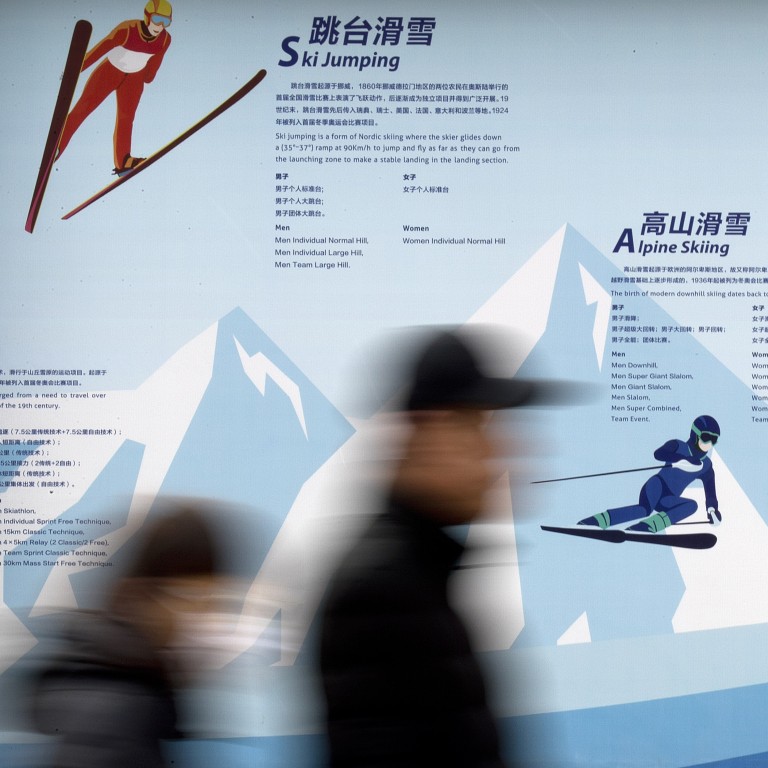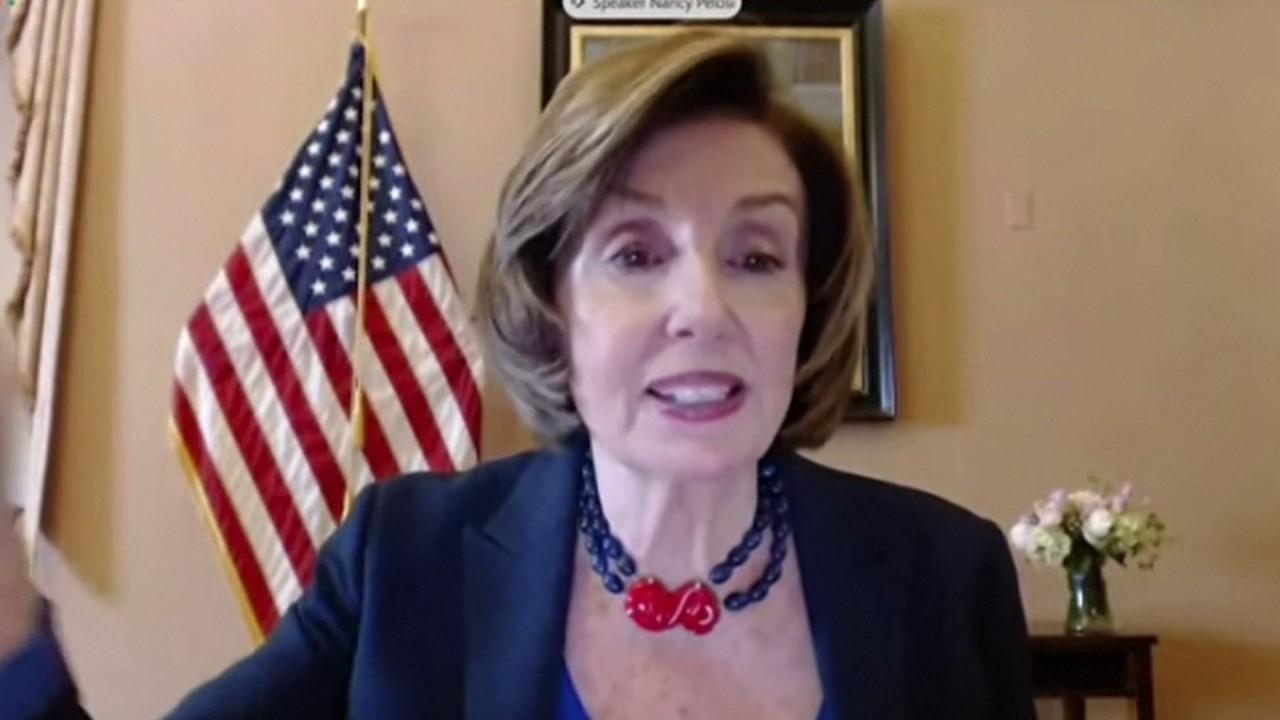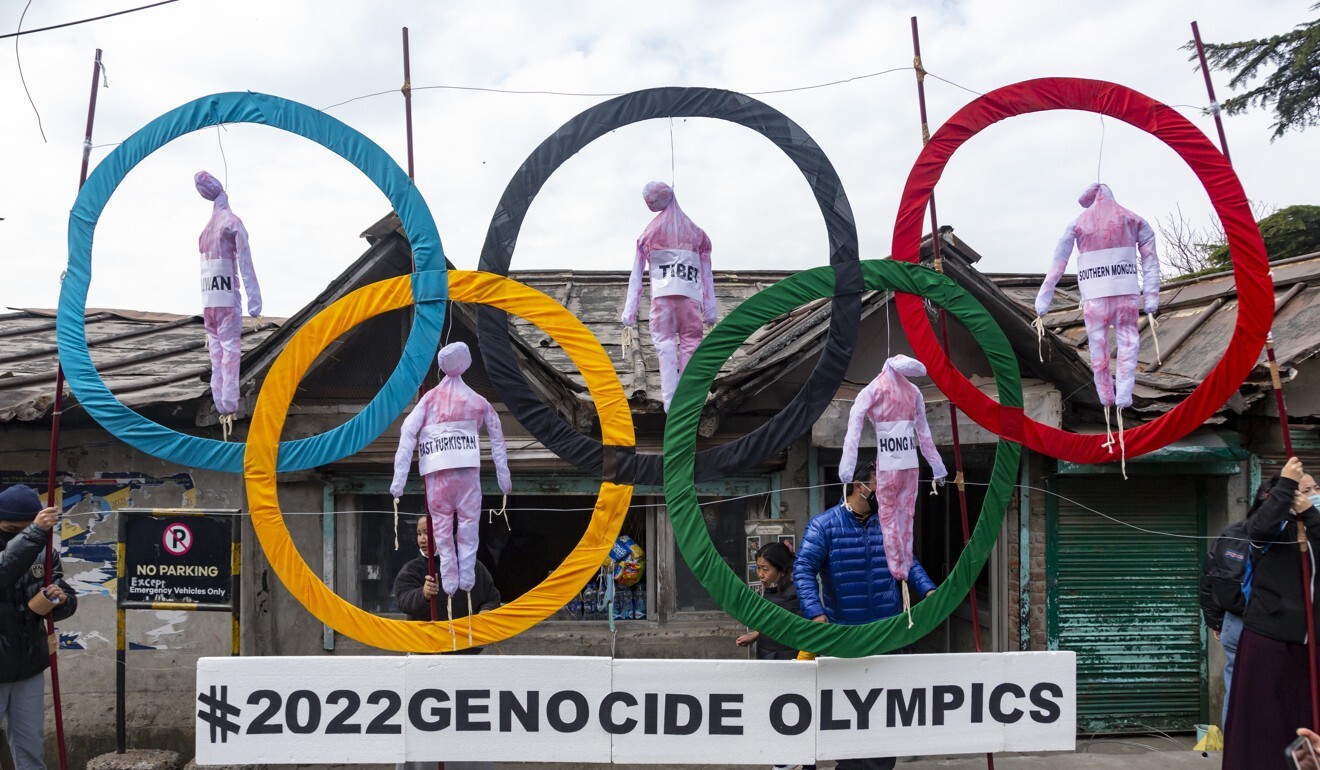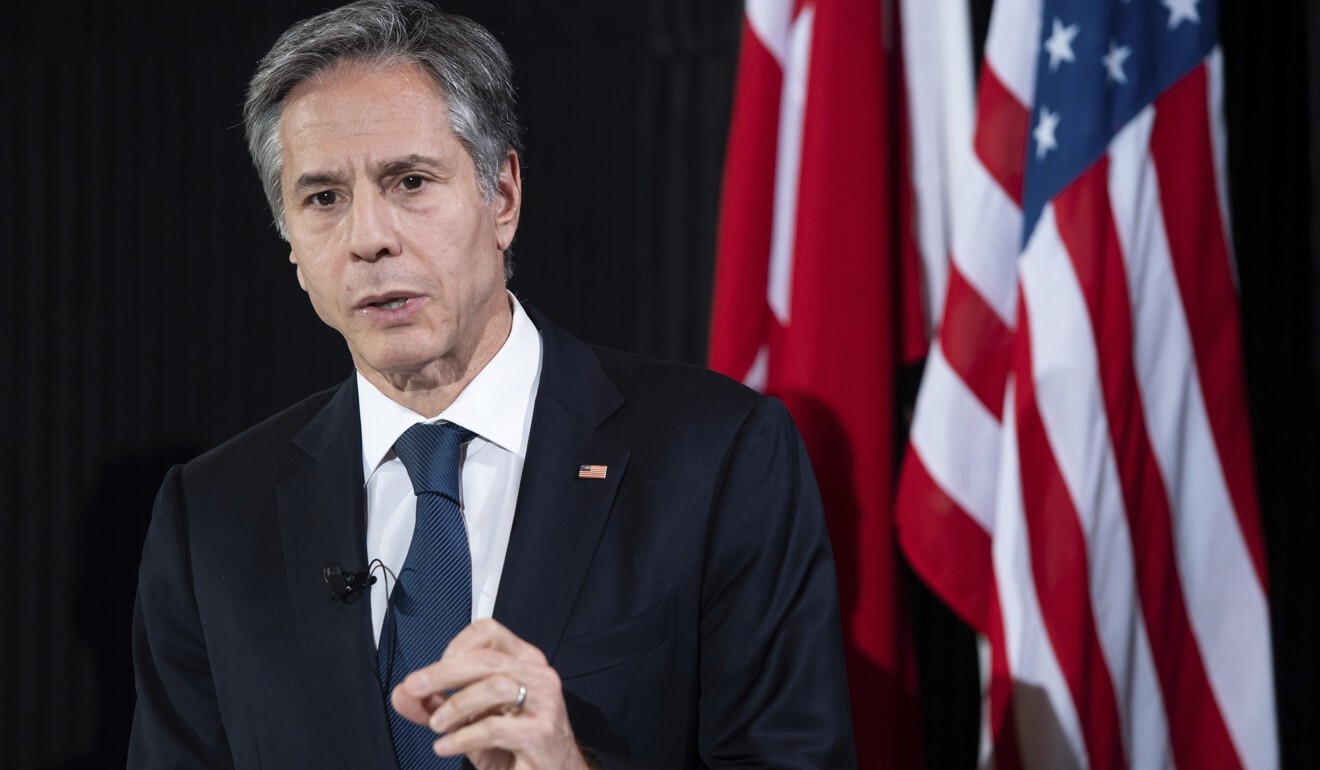
US lawmakers ramp up the pressure for a Beijing Olympics boycott
- House Speaker Nancy Pelosi adds her voice to growing calls for a diplomatic ban over alleged human rights abuses in Xinjiang
- Biden administration has so far refused to be drawn on the issue but its hand could soon be forced by new legislation
Appearing at a congressional hearing, House Speaker Nancy Pelosi joined a growing body of lawmakers calling on the White House to implement a diplomatic boycott of the Games, citing alleged human rights abuses such as the Chinese government’s treatment of ethnic minority groups in the country’s far west.
More than half of Canadians support Beijing Olympics boycott, survey shows
“For heads of state to go to China in light of a genocide that is ongoing while you’re sitting there in your seat really begs the question: what moral authority do you have to speak about human rights any place in the world?” Pelosi said at a hearing jointly convened by the Tom Lantos Human Rights Commission and the Congressional-Executive Commission on China (CECC).
Pelosi’s endorsement of a diplomatic boycott gave extra heft to one of a number of proposals that critics of the Chinese government have floated as possible responses to Beijing’s hosting of the Games, including full-blown boycotts where athletes do not attend, corporate boycotts, and pressuring the IOC to transfer the Games to another city.

00:41
Pelosi calls for US diplomatic boycott of 2022 Beijing Winter Olympics over human rights abuses
On Wednesday, China’s foreign ministry spokesman Zhao Lijian said Beijing strongly opposed efforts to boycott the Games.
“There are certain people in the US who, based on ideological and political prejudice, use the so-called human rights question to smear China and interfere with the preparation and hosting of the Beijing Winter Olympics,” Zhao said at a regular press conference.
Zhao hit back at the US’ record of racism and said Washington had no right to lecture China from a moral high ground.
“The continuing spread of xenophobia, white supremacy and discrimination against people of African and Asian descent and Islamophobia has proven that the US is not the so-called beacon of democracy and is not entitled to be a human rights preacher,” said Zhao, adding that the US and Western countries’ attacks on China’s human rights record was a way to contain China’s development.

“If we can postpone an Olympics by a year for a pandemic, we can surely postpone an Olympics for a year for a genocide,” said Massachusetts Democrat Representative Jim McGovern. “This would give the IOC time to relocate to a country whose government is not committing atrocities.”
The growing furore over the Winter Olympics is reminiscent of the response to Beijing’s successful bid to host the 2008 Summer Games, which saw calls for boycotts over China’s human rights record and its support for the Sudanese regime during the Darfur conflict.
“It’s 2008 all over again, but actually much, much worse,” US-based human rights activist Yang Jianli told lawmakers on Tuesday. “There’s every reason for the US to stay away from the 2022 Beijing Olympics. We should and we can.”
Yang, who heads the Washington-based Citizen Power Initiatives for China, called on the Biden administration to coordinate a political boycott and urge athletes and companies not to take part. Those that did choose to participate, he continued, should be encouraged to find “creative ways” to express their disapproval of Beijing’s actions.
That could be challenging, given that the Olympic Charter, the IOC’s rule book, prohibits any “demonstration or political, religious or racial propaganda” in Olympic venues.
Athletes’ actions while in China would also likely be subject to close scrutiny by Chinese authorities, Human Rights Watch’s Sophie Richardson told lawmakers, calling on governments to take steps to defend their athletes’ right to express their views.
“We think this is going to be a much more serious consular matter than [in 2008], and that may include state surveillance of private communications of athletes, coaches or support staff,” said Richardson, the group’s China director.
As well as calling on US officials not to travel to Beijing, Richardson said corporate sponsors and broadcasters should testify before Congress to face questions about their exposure to human rights abuses.
“How sad it is to see the Olympic corporate sponsors look the other way on China’s abuses out of concern for their bottom line,” Pelosi said on Tuesday.
Her comments were characteristic of a hearing in which lawmakers, united across party lines, did not mince their words in criticising Beijing’s alleged human rights abuses or those complicit in them. Chinese President Xi Jinping “ought to be at The Hague for crimes against humanity”, Representative Chris Smith, Republican of New Jersey, said.
Amid criticism of its decision to award the Winter Olympics to Beijing, the IOC has stressed the need to remain “neutral”, rejecting boycott proposals and calls for the Games to be moved. Meanwhile, the head of the US Olympic and Paralympic Committee, Sarah Hirshland, told lawmakers in a letter last week that an athlete boycott was “not the solution to geopolitical issues”.
Beijing denies all allegations of human rights abuses, describing boycott campaigns as attempts to sabotage the event out of “political interests”.
How Xinjiang human rights dispute is souring China’s relations with the West
Its allegations of politicisation come despite China’s track record as one of the most prolific boycotters of the Olympics, having shunned the event three times, including a protest of the 1956 Games in Melbourne because of Taiwan’s participation.
The US has only ever taken part in one full-blown Olympics boycott, leading a coalition of more than 60 countries to protest the 1980 Summer Games hosted by the Soviet Union over the 1979 invasion of Afghanistan – a boycott joined by China. During the 2014 Winter Games in Sochi, the Obama administration sent no senior officials to Russia in protest of the country’s discriminatory anti-LGBT laws.
Whether the Biden administration will take such a step in 2022 remains an open question. “We’re still some many months away from the Winter Games,” US Secretary of State Antony Blinken told reporters last week. “We certainly hear concerns around the world, and we’ll be, I’m sure in the months ahead, talking to allies and partners about their views on the Olympics.”

But the administration’s hand could soon be forced, following the inclusion of a diplomatic boycott measure in a sweeping China bill recently approved by the Senate foreign relations committee. Following overwhelming committee approval in April, the Strategic Competition Act now awaits consideration by the wider Senate.
The amendment, offered by Senators Mitt Romney, Republican of Utah, and Tim Kaine, Democrat of Virginia, would prohibit the government from using federal funds to support an official delegation to China, though the secretary of state would have the authority to issue waivers in the “national interest”.
Additional reporting by Catherine Wong

